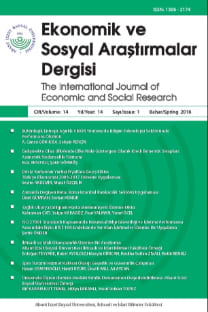Risk Management in Islamic Banks: Findings from Libya
Risk Management in Islamic Banks: Findings from Libya
___
- .
- ISSN: 1306-2174
- Yayın Aralığı: 2
- Başlangıç: 2005
- Yayıncı: Abant İzzet Baysal Üniversitesi İktisadi ve İdari Bilimler Fakültesi
Energy Consumption and Unemployment Nexus in Turkey
TÜRKİYE’DE ENERJİ TÜKETİMİ vE İŞSİZLİK İLİŞKİSİ
İşletmelerde Duygu Gösterim Kuralları ve Örgütsel Vatandaşlığın Duygusal Emek Üzerine Etkileri
Oğuz TÜRKAY, Meltem YALÇIN KAYIKÇI
İŞLETMELERDE DUYGU GÖSTERİM KURALLARI VE ÖRGÜTSEL VATANDAŞLIĞIN DUYGUSAL EMEK ÜZERİNE ETKİLERİ
Meltem YALÇIN KAYIKÇI, Oğuz TÜRKAY
İSLAM BANKALARI’NDA RİSK YÖNETİMİ: LİBYA’DAKİ BULGULAR
Mine HALİS, Ahmed Elmabruk ABDSSALM ELTAWİL
Türkiye’de Vergi Yükünün Değerlendirilmesi: OECD Ülkeleri ile Karşılaştırma
Harun KILIÇASLAN, Sercan YAVAN
Risk Management in Islamic Banks: Findings from Libya
Mine HALİS, Ahmed Elmabruk ABDSSALM ELTAWİL
